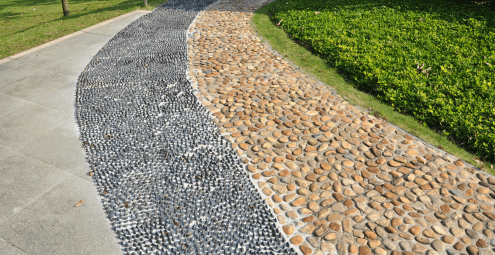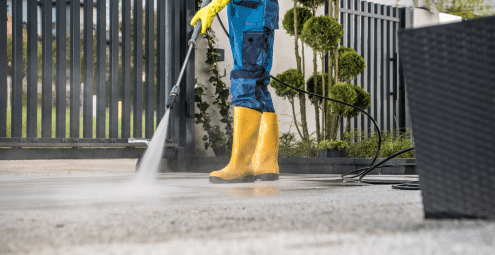There are various types of aggregates available for driveways, but not all of them are suitable. To maintain your driveway, it is essential to perform regular maintenance. By following these tips, you can ensure that your driveway remains functional and aesthetically pleasing for years to come.
Crushed Stone: Crushed stone is one of the most common choices for driveways. It comes in various sizes, including 3/4-inch, 1/2-inch, and fines. Crushed stone is durable and provides excellent drainage, making it an excellent choice for areas with heavy rainfall.
Gravel: Gravel driveways are versatile and can be made from a variety of materials, including pea gravel, river rock, and granite. Gravel driveways offer a rustic, natural look but may require periodic replenishment as the stones can shift over time.
Recycled Concrete: Using recycled concrete as an aggregate is an eco-friendly choice that can provide excellent durability. It can create a modern, industrial look for your driveway.
Asphalt: While not technically an aggregate, asphalt driveways are common and known for their smooth, black surface. They are cost-effective and relatively low-maintenance, but they may require occasional resealing.
Choosing the best aggregate for your driveway largely depends on your aesthetic preferences, budget, and local climate. Ensure you consider factors such as drainage, climate conditions, and the availability of materials in your area.

Once you've chosen the right aggregate for your driveway, proper maintenance is crucial to ensure its longevity and curb appeal. Here are some tips for maintaining your driveway:
Regular Cleaning: Remove debris, leaves, and dirt from your driveway regularly. Use a broom or leaf blower to keep the surface clean. This prevents the buildup of organic matter that can deteriorate the aggregate.
Fill Cracks and Potholes: Address any cracks or potholes promptly. Fill them with suitable patching materials, such as asphalt filler or gravel, to prevent further damage.
Sealing: Some driveways, like asphalt, benefit from periodic sealing to protect against moisture, UV rays, and chemicals. Consult a professional for recommendations on when to reseal your driveway.
Weed Control: Keep an eye out for weeds or grass growing through the cracks. Use a suitable herbicide or pull weeds by hand to prevent them from damaging the driveway.
Proper Drainage: Ensure that your driveway has adequate drainage to prevent water from pooling. Proper drainage can prevent erosion and extend the life of your driveway.
Regular Inspections: Periodically inspect your driveway for signs of wear and tear. Catching and addressing issues early can prevent more significant problems down the road.
Professional Maintenance: Consider hiring professionals for periodic maintenance, especially for specialised driveways like crushed shell or recycled concrete. They can assess the condition of the surface and make necessary repairs.

If you are interested in renewing your driveway with an aggregate material, get in touch.